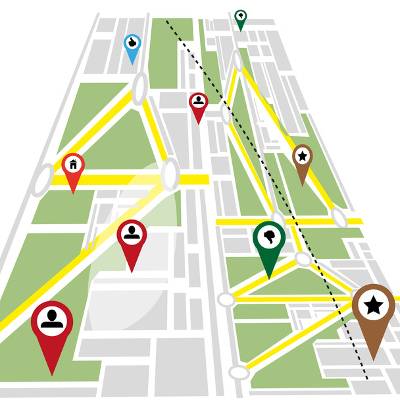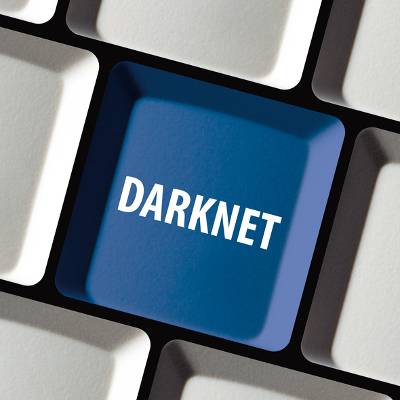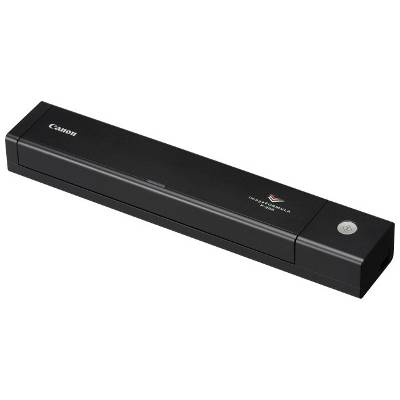Macro Systems Blog
 Have you ever found yourself neck deep in a major business project and nothing seemed to be working? In times like these you may have thrown up your hands and said, “There must be a better way to do this!” Often times there is, and it’s in the form of new technology. Is your current IT provider familiar with the latest technologies that can make operations easier for your business?
Have you ever found yourself neck deep in a major business project and nothing seemed to be working? In times like these you may have thrown up your hands and said, “There must be a better way to do this!” Often times there is, and it’s in the form of new technology. Is your current IT provider familiar with the latest technologies that can make operations easier for your business?
 A technology-based parody of the classic Christmas story, “A Christmas Carol,” by Charles Dickens.
A technology-based parody of the classic Christmas story, “A Christmas Carol,” by Charles Dickens.
Once upon a time, in a land not much different from this one, there lived a business owner. His name was Scrooge. He wasn’t an unlikable fellow; jolly and cheerful at any glance, his smile could light up the darkness in anyone’s life. Yet, when the winter months arrived, and a chilled wind blew across the land, so too did a fell gust freeze his heart. It was time to figure out why his systems were hacked (again), and he knew it would be an expensive endeavor. How he hated managing his IT.
 In the past, we’ve been known to go into detail about threats, vulnerabilities, and how to protect your business while online. Distributed denial of service (DDoS) attacks aren’t new in the technology world, but notorious hacking group Lizard Squad has somehow managed to take out Internet service for much of Sweden with a faulty DDoS attack; an unprecedented feat, especially for a ragtag group of irate gamers.
In the past, we’ve been known to go into detail about threats, vulnerabilities, and how to protect your business while online. Distributed denial of service (DDoS) attacks aren’t new in the technology world, but notorious hacking group Lizard Squad has somehow managed to take out Internet service for much of Sweden with a faulty DDoS attack; an unprecedented feat, especially for a ragtag group of irate gamers.
 For those with weak stomachs, it’s not recommended to go back and read an email that was just sent. In doing so, a spelling or grammar error is likely to be found, which will cause one’s stomach to turn and fill with regret. If only there was a do-over button. Thanks to the new app called Pluto Mail, there is one.
For those with weak stomachs, it’s not recommended to go back and read an email that was just sent. In doing so, a spelling or grammar error is likely to be found, which will cause one’s stomach to turn and fill with regret. If only there was a do-over button. Thanks to the new app called Pluto Mail, there is one.
 We offer a handy IT service called vendor management. This is where we resolve technology issues on behalf of your business by coordinating with vendors to provide a fix, even if it lies outside the realms of our expertise. You may not realize it, but you actually use vendor management services for other everyday aspects of your life.
We offer a handy IT service called vendor management. This is where we resolve technology issues on behalf of your business by coordinating with vendors to provide a fix, even if it lies outside the realms of our expertise. You may not realize it, but you actually use vendor management services for other everyday aspects of your life.
 The holiday shopping season is upon us and more people are choosing to shop from the comforts of their home PC or mobile device rather than fight the crowds. Shopping online is super convenient, but it’s not without the risk of identity theft. The best way to protect your digital shopping cart from hackers is to know how to safely shop online. We’ll show you how.
The holiday shopping season is upon us and more people are choosing to shop from the comforts of their home PC or mobile device rather than fight the crowds. Shopping online is super convenient, but it’s not without the risk of identity theft. The best way to protect your digital shopping cart from hackers is to know how to safely shop online. We’ll show you how.
 This subject isn’t very interesting outside of hospital administrators… or for hospital administrators, but there’s no denying that healthcare is one of the most important industries in our society today; and one that is having a technology overhaul at present. The influx of cheaper and more powerful technology is surely going to be a driving force for healthcare in the 21st century. Under the Health Information Technology for Economic and Clinical Health Act (HITECH), the United States government has followed the lead of other Western nations in forcing entities to upgrade their healthcare practice’s information technology for the betterment of patients, insurers, and health care providers.
This subject isn’t very interesting outside of hospital administrators… or for hospital administrators, but there’s no denying that healthcare is one of the most important industries in our society today; and one that is having a technology overhaul at present. The influx of cheaper and more powerful technology is surely going to be a driving force for healthcare in the 21st century. Under the Health Information Technology for Economic and Clinical Health Act (HITECH), the United States government has followed the lead of other Western nations in forcing entities to upgrade their healthcare practice’s information technology for the betterment of patients, insurers, and health care providers.
 When a dining establishment goes out of business, it usually doesn’t make the news. After all, running a restaurant is a risky endeavor. However, for one Washington D.C. eatery, it’s blaming its failure a Google Places mishap, which makes you think twice about how important it is for your business to have its online information properly displayed.
When a dining establishment goes out of business, it usually doesn’t make the news. After all, running a restaurant is a risky endeavor. However, for one Washington D.C. eatery, it’s blaming its failure a Google Places mishap, which makes you think twice about how important it is for your business to have its online information properly displayed.
 Today, having a strong WiFi signal is critical. You need a reliable signal for every part of your home, office, and even outside the building. Is your wireless signal strong in some areas and spotty in others? Would your life be immensely easier if your signal extended for just one or two more rooms? For this week’s tip, here’s how you can extend your WiFi signal.
Today, having a strong WiFi signal is critical. You need a reliable signal for every part of your home, office, and even outside the building. Is your wireless signal strong in some areas and spotty in others? Would your life be immensely easier if your signal extended for just one or two more rooms? For this week’s tip, here’s how you can extend your WiFi signal.
 Have you ever wondered how hackers become hackers in the first place? How are tools readily available to them? Business owners might be reluctant to find out that hacking has become easier than ever over the past decade. This is partly due to the increased sophistication of the black market known to some as the Darknet.
Have you ever wondered how hackers become hackers in the first place? How are tools readily available to them? Business owners might be reluctant to find out that hacking has become easier than ever over the past decade. This is partly due to the increased sophistication of the black market known to some as the Darknet.
 Collaboration. It’s a buzzword that managers talk about all the time, yet few organizations will claim that they’ve mastered it. It’s often a company’s misuse of technology that attributes to their collaboration shortcomings--which is ironic because utilizing the right technology is the surest way to improve collaboration.
Collaboration. It’s a buzzword that managers talk about all the time, yet few organizations will claim that they’ve mastered it. It’s often a company’s misuse of technology that attributes to their collaboration shortcomings--which is ironic because utilizing the right technology is the surest way to improve collaboration.
 It can make a big difference for your business to partner with the right technology vendor. How can you know if you’re working with a vendor that’s looking out for your company’s best interests, or one that wants to rip you off? You can know for sure if you’re working with the right vendor if you have your trusted IT provider choose them for you.
It can make a big difference for your business to partner with the right technology vendor. How can you know if you’re working with a vendor that’s looking out for your company’s best interests, or one that wants to rip you off? You can know for sure if you’re working with the right vendor if you have your trusted IT provider choose them for you.
 Technology is reliable. With correct coding and high-level instructions, technology will do exactly what it’s supposed to do. Yet, technology has a reputation for failing and being hard to work with. Might we be so bold as to suggest that the majority of technology problems are actually caused by humans? Here are three ways that human behavior breaks perfectly good technology.
Technology is reliable. With correct coding and high-level instructions, technology will do exactly what it’s supposed to do. Yet, technology has a reputation for failing and being hard to work with. Might we be so bold as to suggest that the majority of technology problems are actually caused by humans? Here are three ways that human behavior breaks perfectly good technology.
 Ten years ago, the world was a different place. In the technology world, Gmail was first introduced, and North Korea banned mobile phones. But while North Korea banned them, just south across the country’s border was the ITU Telecom Asia expo in Busan, South Korea, where the future of the mobile phone was bright. How did they think the cell phone of the future would pan out?
Ten years ago, the world was a different place. In the technology world, Gmail was first introduced, and North Korea banned mobile phones. But while North Korea banned them, just south across the country’s border was the ITU Telecom Asia expo in Busan, South Korea, where the future of the mobile phone was bright. How did they think the cell phone of the future would pan out?
 This holiday season, upon witnessing the aftermath of opening exchanged presents, you may look across the sea of wrapping paper strewn across your living room and say to yourself, “There’s just way too much paper in my life right now.” If one of those boxes contains a digital scanner, then you’ve got everything you need to take back your life from the throngs of paper.
This holiday season, upon witnessing the aftermath of opening exchanged presents, you may look across the sea of wrapping paper strewn across your living room and say to yourself, “There’s just way too much paper in my life right now.” If one of those boxes contains a digital scanner, then you’ve got everything you need to take back your life from the throngs of paper.
 Every office worker knows that downtime experienced from a technology issue can totally derail the day’s productivity. However, one thing that office managers might not be aware of is how, in a downtime event, it’s possible to divert a worker’s energy so that productivity still happens on some level, which helps take the sting out of downtime.
Every office worker knows that downtime experienced from a technology issue can totally derail the day’s productivity. However, one thing that office managers might not be aware of is how, in a downtime event, it’s possible to divert a worker’s energy so that productivity still happens on some level, which helps take the sting out of downtime.
 The world of online currency is a strange, bizarre realm. While it’s designed for online transactions, it has gone from the somewhat useful (Bitcoin) to just plain silly (Dogecoin). However, there’s now an anonymous cryptocurrency available for use called Darkcoin, which attempts to make online transactions more difficult to trace.
The world of online currency is a strange, bizarre realm. While it’s designed for online transactions, it has gone from the somewhat useful (Bitcoin) to just plain silly (Dogecoin). However, there’s now an anonymous cryptocurrency available for use called Darkcoin, which attempts to make online transactions more difficult to trace.
 It’s important to keep your communications plans organized, but it’s especially important for your IT department to keep in touch with other parts of your business. If a fatal problem shows its face, you want to make sure that they are there to fix it. In order to prevent these situations, plan out your IT communications strategy in detail, and stick to it.
It’s important to keep your communications plans organized, but it’s especially important for your IT department to keep in touch with other parts of your business. If a fatal problem shows its face, you want to make sure that they are there to fix it. In order to prevent these situations, plan out your IT communications strategy in detail, and stick to it.





